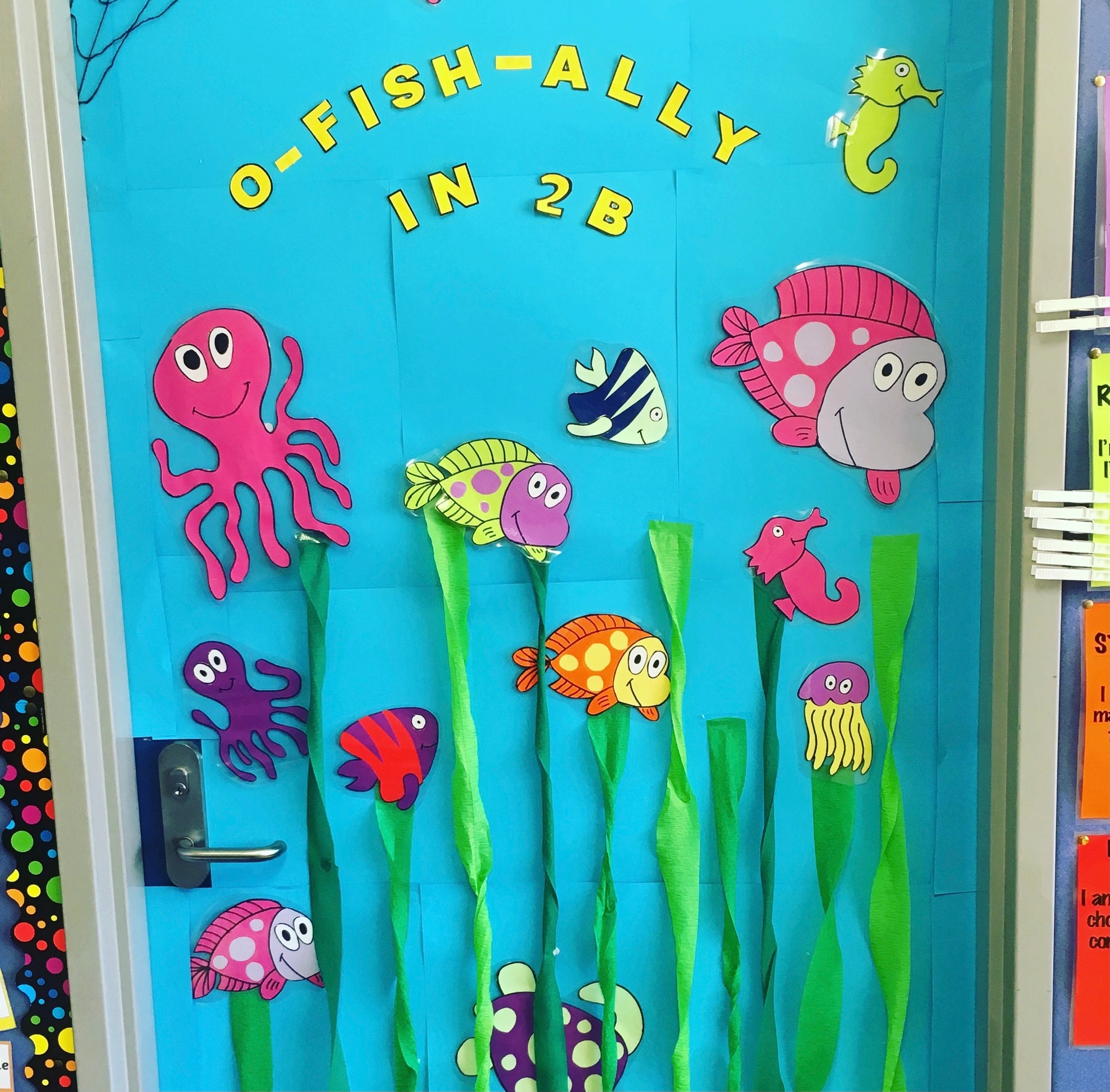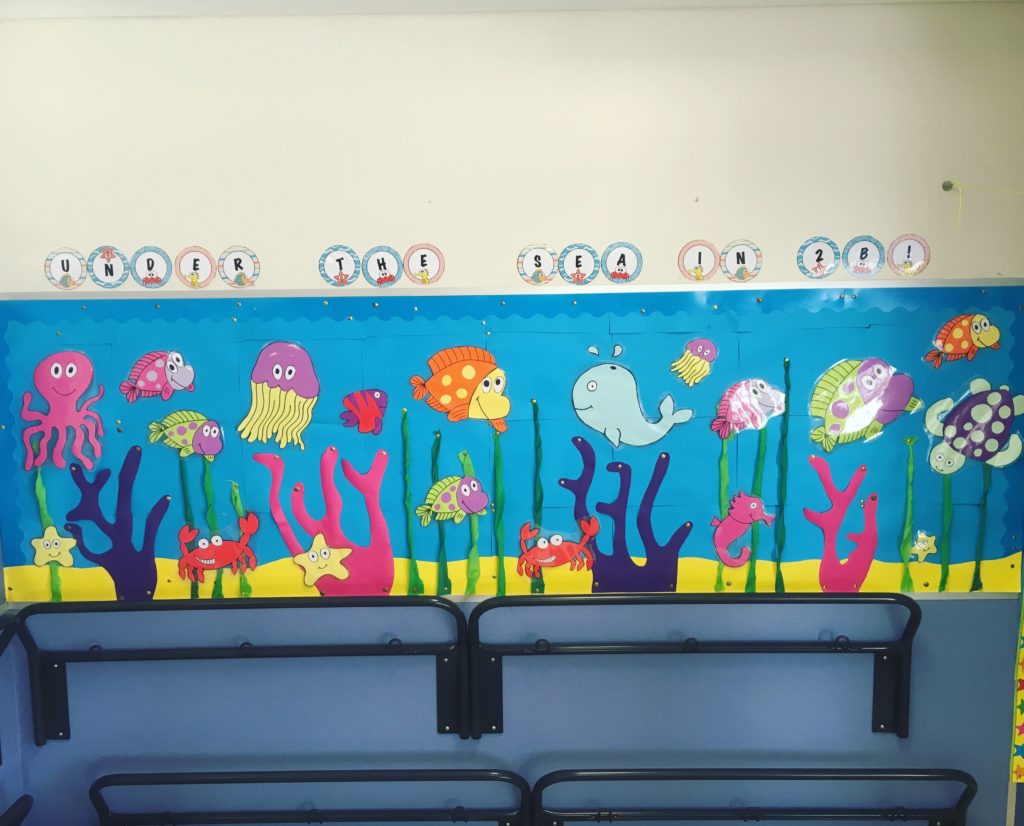As a teacher, I’ve always believed that a well-decorated classroom can ignite curiosity and passion in students. One of my favorite themes to decorate with is the enchanting world beneath the waves. Under the sea classroom decorations can bring a vibrant, calming atmosphere to your classroom, stimulating creativity and engagement. In this article, I’ll share my personal experiences, tips, ideas, and even some DIY projects that can turn your classroom into an undersea wonderland.
Why Choose an Under the Sea Theme?
The ocean is a vast and mesmerizing place filled with diverse marine life, which can captivate the imagination of children. Here are a few reasons why an under the sea theme is an excellent choice for classroom decorations:
- Engaging Visuals: Bright colors and interesting shapes can attract students’ attention and enhance their learning experience.
- Encourages Creativity: The ocean theme allows for a range of creative projects, from art to science.
- Educational Opportunities: Marine biology and environmental science topics can be introduced in a fun context.
Inspiration for Under the Sea Classroom Decorations
Wall Art and Murals
Transforming your walls is one of the best ways to start your under the sea theme. Here are some options:
1. DIY Ocean Murals
If you’re artistically inclined, consider painting a mural on one wall. Choose vibrant colors like blues, greens, and coral hues. You can incorporate sea creatures and underwater plants for a dynamic look.
2. Printed Wall Art
For a less labor-intensive option, purchase or print high-quality images of the ocean, such as:
- Coral reefs
- Diverse marine life
- Underwater landscapes
Frame these images and create a gallery wall that celebrates the beauty of the ocean.

Ceiling Decorations
Don’t forget about the ceiling! Here are some ideas to create an immersive environment:
1. Hanging Fish
Craft colorful fish from construction paper or purchase pre-made decorations. Hang them from the ceiling at different heights to create a sense of depth.
2. Streamers and Bubbles
Create the illusion of swimming underwater by using streamers in shades of blue and green. You can even add white balloons to resemble bubbles!
Classroom Furniture Decor
Consider transforming your classroom furniture to fit the theme:
- Table Covers: Use tablecloths with ocean prints or colors that match your theme.
- Chair Decorations: Attach sea creature cutouts or colorful fabric to the backs of chairs.

Crafting Under the Sea Decor: DIY Ideas
If you’re a hands-on teacher like I am, you’ll love these DIY ideas that not only enhance your classroom but can also involve your students:
1. Sea Creature Puppets
Use felt or construction paper to create sea creature puppets. Students can use these for storytelling sessions, which enhances their creativity.
2. Jellyfish Lanterns
Take old, clear jars and fill them with string lights. Attach ribbons and crepe paper to the top to mimic jellyfish. These can be hung around the classroom for a magical glow.

3. Coral Reef Art Project
Let students create their own coral reefs using recycled materials like egg cartons and paint. This art project is a great way to discuss ocean ecosystems.
Classroom Management and Engagement with Ocean Themes
Incorporating the under the sea theme into classroom management can be highly beneficial. Consider the following:

1. Themed Rewards
Create an ocean-themed reward system where students can earn “shells” for positive behavior. These can then be exchanged for prizes.
2. Group Work Names
Assign groups names based on sea creatures (e.g., “Team Dolphin” or “Squad Octopus”) to create a sense of belonging and identity.

Comparison of Under the Sea Decor Ideas
| Deco Idea | Cost | Time to Create | Engagement Level |
|---|---|---|---|
| Ocean Murals | Medium | High | Very High |
| Hanging Fish | Low | Medium | High |
| DIY Puppets | Low | Medium | Medium-High |
| Bubble Streamers | Low | Low | Medium |
Pros and Cons of Under the Sea Classroom Decorations
Pros
- Creates an engaging and immersive learning environment.
- Opens doors for interdisciplinary learning.
- Encourages teamwork and creativity through group projects.

Cons
- Initial setup can be time-consuming and costly.
- Decor may require regular maintenance (e.g., replacing worn items).
Maintaining Under the Sea Decor Throughout the Year
Once your classroom decorations are up, it’s essential to keep them fresh and engaging throughout the school year:

1. Seasonal Updates
Consider updating some elements of your decor based on holidays or seasons. For example, add a holiday twist by incorporating festive ocean-themed decorations during Christmas.
2. Student Contributions
Encourage students to create new ocean-themed art pieces that can replace older decorations, maintaining a lively atmosphere.
FAQs About Under the Sea Classroom Decorations
What materials are ideal for under the sea classroom decorations?
Common materials include construction paper, felt, balloons, streamers, and recycled materials for DIY projects.
How much should I budget for under the sea decorations?
Budgeting can vary greatly based on the extent of the decorations. Basic decor can be achieved for under $100, while a more elaborate setup might require $300 or more.
Can I incorporate STEM learning with ocean themes?
Absolutely! The ocean theme is perfect for STEM projects, exploring topics like marine biology, water cycles, and environmental conservation.
How can I make my decorations more sustainable?
Use reusable materials, recycle old decorations, or create new items from scrap materials to reduce waste.
Any tips for minimizing clutter with extensive decorations?
Limit the decorations to a few key areas to avoid overwhelming the space. Rotate decorations based on themes or seasons to keep the classroom fresh.
Conclusion: Dive Into Your Under the Sea Adventure!
Decorating your classroom with an under the sea theme can provide an exciting, educational, and visually appealing environment for your students. With a little creativity and planning, you can create a space that inspires wonder and curiosity about the ocean and its ecosystems. I encourage you to dive into this project and see the positive impacts it can have on your students’ learning experiences!